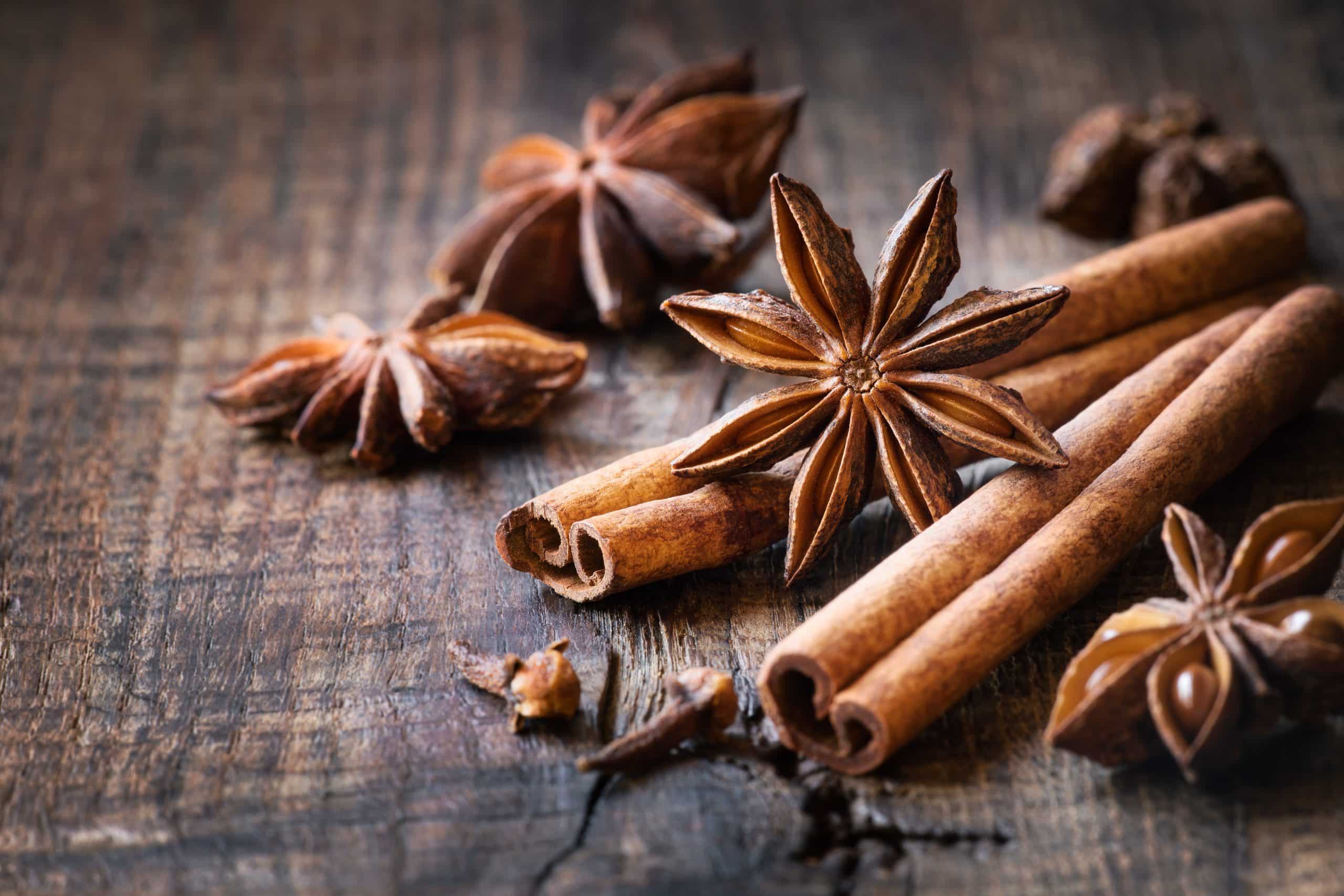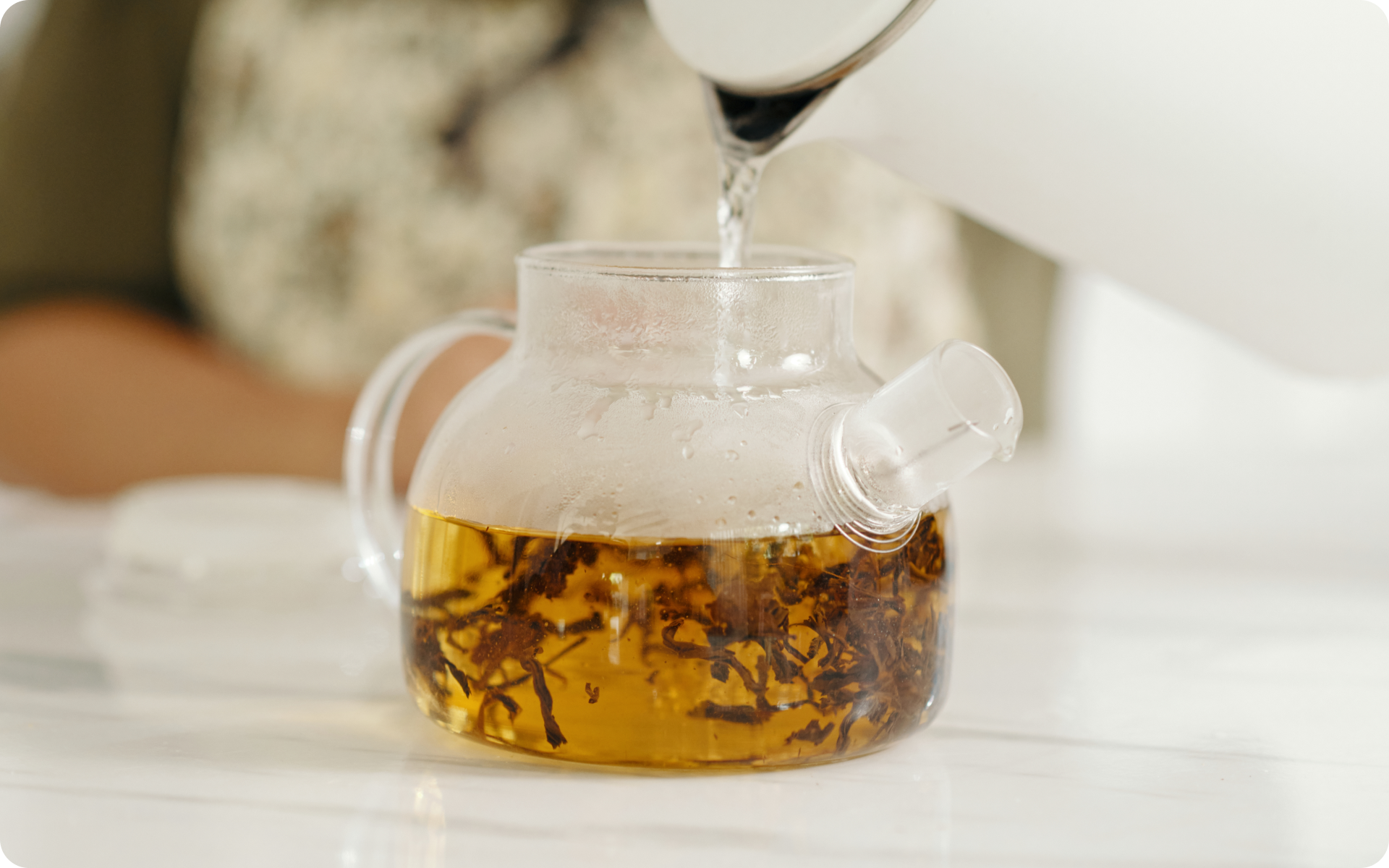Star Anise, scientifically known as Illicium verum, is an intriguing spice with a unique star-shaped appearance and a plethora of health benefits. Native to southwestern China and parts of Vietnam, this evergreen tree produces fruits that are harvested and dried for culinary and medicinal uses. The spice emits a distinct aroma and offers a sweet, licorice-like flavor, making it a popular ingredient in various cuisines worldwide. In this blog post, we will provide you with a comprehensive analysis of the many benefits of Star Anise, particularly those backed by scientific research. We’ll explore six remarkable ways this spice can bolster your immunity and contribute to your overall well-being, uncovering the lesser-known aspects of this extraordinary plant.
Get your personalized
meal plan!
What Is Star Anise?
Star Anise is a versatile spice with numerous applications across the culinary, medicinal, and wellness industries. Its dried fruits, seeds, and essential oil provide a range of uses that showcase the spice’s unique flavor, aroma, and health-promoting properties.
Star Anise is a rich source of various beneficial compounds that contribute to its health-promoting properties.
Some of the key compounds found in Star Anise include:
Anethole
This compound is responsible for the characteristic sweet, licorice-like flavor and aroma of Star Anise. It exhibits antioxidant, anti-inflammatory, and antimicrobial properties, making it an essential component in the spice’s potential health benefits (1).
Shikimic Acid
Known for its antiviral properties, shikimic acid plays a crucial role in the synthesis of antiviral drugs like oseltamivir (Tamiflu). It may help combat viral infections and support respiratory health (6).
Linalool
A naturally occurring terpene alcohol, linalool is found in many plants, including Star Anise. It contributes to the spice’s aroma and has been shown to possess antioxidant, anti-inflammatory, and antimicrobial properties (3).
Quercetin
A flavonoid present in various fruits, vegetables, and spices, including Star Anise, quercetin is known for its potent antioxidant and anti-inflammatory effects. It may help protect against cellular damage, reduce inflammation, and support overall health (10).
Coumarins
Star Anise contains coumarins, which are plant-based compounds with antioxidative and anti-inflammatory properties. They may also have potential anticoagulant effects, though more research is needed to confirm this (9).
Vitamins And Minerals
While not as concentrated as in fruits and vegetables, Star Anise does contain small amounts of essential vitamins and minerals, such as vitamin C, calcium, and potassium, which contribute to overall health and well-being.
Read More: Benefits Of Cold Pressed Juice Will Make You Ditch Your Fav Box-Brand Juice
What Is Star Anise Used For?
Here are some of the common ways in which different parts of this versatile spice are used:
Culinary Uses
The dried fruits, or seed pods, of Star Anise are mainly employed to enhance the flavor and aroma of dishes. They are either used whole or ground into a powder, imparting a sweet, licorice-like taste to various recipes.
Star Anise is a key component in Chinese Five-Spice Powder and is also used in Indian, Malay, Indonesian, and Vietnamese cuisine; it’s often incorporated into soups, stews, braises, and rice dishes.
Beverages
Star Anise can be steeped in hot water to make a soothing herbal tea, often combined with other herbs and spices, such as cinnamon, cloves, and ginger. Additionally, it is an ingredient in some liqueurs, like the French pastis and the Italian sambuca.
Medicinal Uses
In traditional Chinese medicine, Star Anise has been used for centuries to treat various ailments, including digestive issues, respiratory problems, and inflammation. Its essential oil, extracted from the seeds, contains compounds like anethole and shikimic acid, which have demonstrated antimicrobial, antifungal, and antioxidant properties (7).
Aromatherapy
The essential oil of Star Anise is also used in aromatherapy to promote relaxation and alleviate stress, thanks to its warm, sweet scent. It can be found in diffusers, massage oils, and candles to create a calming atmosphere (5).
Cosmetics And Personal Care
Star Anise’s essential oil is sometimes incorporated into cosmetic and personal care products, such as soaps, lotions, and perfumes, for its pleasant fragrance and potential skin benefits (5).
If you wish to free yourself from all the extra pounds that have been weighting you down for way too long, start using the BetterMe app and overhaul your entire life!
What Are The Benefits Of Star Anise?
Incorporating Star Anise into your diet may help you take advantage of the various compounds it contains and their positive effects on overall health, including:
Antioxidant Properties
Star Anise is rich in antioxidants, which are essential for neutralizing harmful free radicals in the body. Free radicals can cause oxidative stress, leading to cellular damage and the development of chronic diseases. The antioxidants found in Star Anise, such as quercetin and anethole, may help protect the body against this damage and support overall health (7).
Anti-Inflammatory Effects
Inflammation is a natural immune response, but chronic inflammation can contribute to various health issues. Research suggests that certain compounds in Star Anise, including anethole, possess anti-inflammatory properties (1) (7).
These compounds may help reduce inflammation in the body, potentially relieving conditions like arthritis and other inflammatory ailments.
Antimicrobial And Antifungal Properties
Star Anise has been shown to exhibit antimicrobial and antifungal activity, which could be beneficial in combating infections (7).
The essential oil derived from Star Anise contains compounds, such as anethole and shikimic acid, which have demonstrated the ability to inhibit the growth of bacteria and fungi.
This suggests that Star Anise may play a role in preventing and treating infections, though more human research is needed to confirm these findings.
Digestive Health
Traditionally used in Chinese medicine to alleviate digestive issues, Star Anise may help improve gut health. Its carminative properties could aid in reducing gas, bloating, and indigestion (7).
Additionally, the spice’s antispasmodic effects may help relieve gastrointestinal discomfort by relaxing the smooth muscles in the digestive tract.
Read More: 5 Secrets For Cooking And Plating High-Protein Foods For Picky Eaters
Respiratory Health
Star Anise has been used for centuries to treat respiratory problems, such as coughs, colds, and bronchitis. Its expectorant and antiviral properties may help clear mucus from the airways and alleviate congestion, potentially offering relief for those suffering from respiratory ailments (7).
However, more research is needed to fully understand the extent of its effects on respiratory health.
Immune System Support
The compounds found in Star Anise, including antioxidants and antimicrobial agents, may contribute to a stronger immune system (7).
By protecting the body against oxidative stress, reducing inflammation, and fighting off infections, Star Anise could play a role in promoting overall immune health.
However, further research is required to establish a direct link between Star Anise consumption and immune function in humans.
What Are Star Anise Side Effects?
While Star Anise is generally considered safe when consumed in moderation, it is still important to be aware of its potential side effects:
Allergic Reactions
Some individuals may experience allergic reactions to Star Anise, including skin irritation, itching, or hives. If you have a known allergy to plants in the Apiaceae family, such as anise, fennel, or celery, you may also be allergic to Star Anise.
Drug Interactions
Star Anise may interact with certain medications, such as anticoagulants and antiplatelet drugs, due to its coumarin content. These interactions could increase the risk of bleeding. If you are taking any medications, it is essential to consult with your healthcare provider before consuming Star Anise.
Pregnancy And Breastfeeding
Although there is limited research on the effects of Star Anise during pregnancy and breastfeeding, it is advised to avoid excessive consumption during these periods. Some compounds present in the spice, like anethole, could potentially have estrogenic effects, which may not be suitable for pregnant or breastfeeding women.
Gastrointestinal Issues
Excessive consumption of Star Anise may lead to gastrointestinal problems, such as nausea, vomiting, abdominal pain, or diarrhea (2). It is essential to consume this spice in moderation to minimize the risk of these side effects.
Yanking yourself back in shape has never been so easy with our game-changing fitness app! Start transforming your life with BetterMe!
Neurological Effects
High doses of Star Anise or its essential oil may cause neurological issues, such as seizures or convulsions, particularly in individuals with pre-existing neurological disorders (4). It is crucial to use Star Anise and its essential oil with caution and under the guidance of a healthcare professional.
Japanese Star Anise Toxicity
It is important to note that there is a toxic look-alike called Japanese Star Anise (Illicium anisatum), which contains potent neurotoxins called anisatins.
Ingesting Japanese Star Anise can lead to severe side effects, such as seizures, hallucinations, and kidney damage (8). Always ensure you are consuming the safe and edible variety, Illicium verum, to avoid these harmful effects.
Conclusion
Star Anise is a versatile and flavorful spice with numerous surprising health benefits. From its antioxidant and anti-inflammatory properties to digestive and respiratory support, this unique spice has a lot to offer.
However, it is vital to be aware of its potential side effects and consume Star Anise in moderation. By incorporating this spice into your diet mindfully, you can enjoy its delightful taste and potential health-boosting properties.
DISCLAIMER:
This article is intended for general informational purposes only and does not serve to address individual circumstances. It is not a substitute for professional advice or help and should not be relied on for making any kind of decision-making. Any action taken as a direct or indirect result of the information in this article is entirely at your own risk and is your sole responsibility.
BetterMe, its content staff, and its medical advisors accept no responsibility for inaccuracies, errors, misstatements, inconsistencies, or omissions and specifically disclaim any liability, loss or risk, personal, professional or otherwise, which may be incurred as a consequence, directly or indirectly, of the use and/or application of any content.
You should always seek the advice of your physician or other qualified health provider with any questions you may have regarding a medical condition or your specific situation. Never disregard professional medical advice or delay seeking it because of BetterMe content. If you suspect or think you may have a medical emergency, call your doctor.
SOURCES:
- Anethole, a Medicinal Plant Compound, Decreases the Production of Pro-Inflammatory TNF-α and IL-1β in a Rat Model of LPS-Induced Periodontitis (2014, nih.gov)
- [Apparent life-threatening event in infants: think about star anise intoxication!] (2011, nih.gov)
- Anti-inflammatory activity of linalool and linalyl acetate constituents of essential oils (2002, nih.gov)
- [Cases of neurological symptoms associated with star anise consumption used as a carminative] (2002, nih.gov)
- Illicium verum (Star Anise) and Trans-Anethole as Valuable Raw Materials for Medicinal and Cosmetic Applications (202, nih.gov)
- Shikimic acid in the light of current knowledge (2022, nih.gov)
- Star anise (Illicium verum): Chemical compounds, antiviral properties, and clinical relevance (2020, nih.gov)
- [Star anise poisoning in infants] (2003, nih.gov)
- The antioxidant activity of coumarins and flavonoids (2013, nih.gov)
- Quercetin, Inflammation and Immunity (2016, nih.gov)











